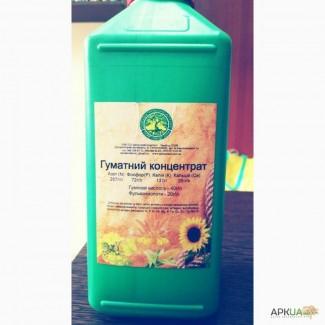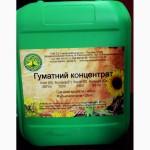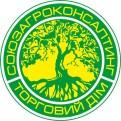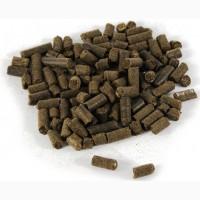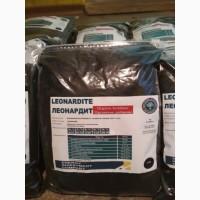/ Fertilizers and plant protection products / Organic fertilizers / I will sell organic fertilizer humate concentrate
Sell / buy
Sell organic fertilizer humate concentrate, Dnipropetrovsk region.
Price350 UAH.
Region:all of Ukraine,
Dnepropetrovsk region.
(G. Synelnikovo)
Updated:
Packaging: 2 l, 5 l, 10 l
Check the price and availability.
We work all over Ukraine!
Discounts for wholesale and regular customers!
We offer high-quality sunflower seed, corn, Sudan grass, and alfalfa seed, as well as microfertilizers andplant protection products.
For all questions and product orders, please call:
050-132-89-81, 096-877-98-07, Margarita Anatolyevna
Humate concentrate is a new highly effective complex biostimulant with a high content of fulvic and humic acids, nitrogen, phosphorus, potassium and calcium, which helps to increase the yield and quality indicators of grain. Fertilizer based on potassium humate contains in concentrated form micro- and macroelements, natural stimulants, vitamins, antibiotics, biologically active substances: N, P, K, Ca, Mg, S, Fe, Cu, Zn, Co, Mo, B. Components humate concentrate complement each other and enhance the effect of drug treatment.
PURPOSE:
– Pre-sowing treatment of seeds (possibly together with poisoners).
– Foliar feeding of field crops (possibly in a mixture with pesticides).
– Removal of pesticide stress.
– Destruction of stubble.
The use of the drug contributes to:
• increasing productivity (field crops - by 10–20%);
• improvement of harvest quality indicators;
• increasing the immunity of plants (resistance to diseases, drought and cold);
• elimination of pesticide stress (when combined with
using pesticides);
• full assimilation of nutrients (increase efficiency
use of fertilizers).
Humic and fulvic acids help increase the activity of all plant cells. As a result, the energy of the cell increases, the physical and chemical properties of the protoplasm improve, the metabolism, photosynthesis and respiration of plants intensifies. As a result, cell division is accelerated, which means that overall plant growth is improved. An increase in plant biomass and activation of metabolism leads to increased photosynthesis and accumulation of amino acids, sugars, vitamins and organic acids by plants. The exchange of substances between the roots and the soil increases. The organic acids secreted by the roots actively affect the soil, increasing the availability of nutrients and microelements. As a result of the treatment, the resistance of plants to various diseases is significantly increased. Along with this, when treated with humates, the resistance of plants to adverse factors of the external environment - extreme temperatures, overmoistening, strong wind - increases.
Phosphorus plays an extremely important role in energy exchange processes in plant organisms. With a lack of phosphorus, the exchange of energy and substances in plants is disturbed. Phosphorus deficiency has a particularly severe effect on the formation of reproductive organs in all plants. In cereals, phosphorus deficiency reduces tillering and the formation of fruiting stems. Signs of phosphorus starvation usually appear already at the initial stages of plant development, when they have a poorly developed root system and are unable to assimilate poorly soluble phosphates in the soil.
Potassium is the main component that increases the quality and stability of plants. Plays an important role in energy conversion; a catalyst for the synthesis of high-molecular substances from simpler ones, promotes the synthesis of sucrose, starch, fats and proteins, increases the concentration of cell juice, thereby reducing water evaporation, and increases the use of soil moisture and resistance to drought.
Calcium takes part in water, carbohydrate and nitrogen exchange, neutralizes the effect of organic acids, regulates metabolic processes, regulates the water balance of the cell and physiological balance, is necessary for the plant to form nucleic acids, photosynthesis and energy exchange are closely related to it. The most important role of calcium is participation in the construction of cell membranes and maintenance of their structural organization, membrane potential.
New, intensive agricultural technologies are very widely usedplant protection products. Most chemical pesticides are quite toxic. Therefore, most often, in addition to their main function (protection of plants from diseases, weeds and pests), they cause a stressful effect on the culture they protect. Application of macro- and micro-fertilizers together with a humate stimulator allows to remove chemical stress from the use of pesticides. Thanks to the well-balanced content of nutrients, the humate concentrate effectively relieves pesticide stress from plants.
SPENDING STANDARDS
Agricultural culture
Spending norms
Processing phase
Seed processing
Foliar nutrition
Drug
Working district
Sunflower
0.5-1.0 l/t
Simultaneously with etching
0.5-1.0 l/ha
100-350 l/ha
Phase 4-6 leaves, budding
Rapak
(//tractor-service.com)
0.5-1.0 l/t
Simultaneously with etching
0.5-1.0 l/ha
100-350 l/ha
The phase of stemming, budding
Soya
0.5-1.0 l/t
Simultaneously with etching
0.5-1.0 l/ha
100-350 l/ha
3-5 real leaves, budding
Corn, sorghum, millet
0.5-1.0 l/t
Simultaneously with etching
0.5-1.0 l/ha
100-350 l/ha
3-5 real leaves
Cereal crops
0.5-1.0 l/t
Simultaneously with etching
0.5-1.0 l/ha
100-350 l/ha
Phase of tillering, earing
Fruit and vegetable crops
0.5-1.0 l/t
Simultaneously with etching
0.5-1.0 l/ha
100-350 l/ha
Phase of tillering, earing
Stubble destruction
1.0-2.0 l/ha
100-350 l/ha
Afterharvest
SAFETY MEASURES:
The drug is a low-hazard substance. The drug is non-toxic, non-allergenic, environmentally safe.
When using the drug, follow generally accepted safety measures. In case of contact with skin or eyes, rinse with warm water. If necessary, consult a doctor.
STORAGE:
Store in a place inaccessible to children at a temperature from 0 °C to 30 °C. The storage period is 2 years.
Check the price and availability.
We work all over Ukraine!
Discounts for wholesale and regular customers!
We offer high-quality sunflower seed, corn, Sudan grass, and alfalfa seed, as well as microfertilizers andplant protection products.
For all questions and product orders, please call:
050-132-89-81, 096-877-98-07, Margarita Anatolyevna
Humate concentrate is a new highly effective complex biostimulant with a high content of fulvic and humic acids, nitrogen, phosphorus, potassium and calcium, which helps to increase the yield and quality indicators of grain. Fertilizer based on potassium humate contains in concentrated form micro- and macroelements, natural stimulants, vitamins, antibiotics, biologically active substances: N, P, K, Ca, Mg, S, Fe, Cu, Zn, Co, Mo, B. Components humate concentrate complement each other and enhance the effect of drug treatment.
PURPOSE:
– Pre-sowing treatment of seeds (possibly together with poisoners).
– Foliar feeding of field crops (possibly in a mixture with pesticides).
– Removal of pesticide stress.
– Destruction of stubble.
The use of the drug contributes to:
• increasing productivity (field crops - by 10–20%);
• improvement of harvest quality indicators;
• increasing the immunity of plants (resistance to diseases, drought and cold);
• elimination of pesticide stress (when combined with
using pesticides);
• full assimilation of nutrients (increase efficiency
use of fertilizers).
Humic and fulvic acids help increase the activity of all plant cells. As a result, the energy of the cell increases, the physical and chemical properties of the protoplasm improve, the metabolism, photosynthesis and respiration of plants intensifies. As a result, cell division is accelerated, which means that overall plant growth is improved. An increase in plant biomass and activation of metabolism leads to increased photosynthesis and accumulation of amino acids, sugars, vitamins and organic acids by plants. The exchange of substances between the roots and the soil increases. The organic acids secreted by the roots actively affect the soil, increasing the availability of nutrients and microelements. As a result of the treatment, the resistance of plants to various diseases is significantly increased. Along with this, when treated with humates, the resistance of plants to adverse factors of the external environment - extreme temperatures, overmoistening, strong wind - increases.
Phosphorus plays an extremely important role in energy exchange processes in plant organisms. With a lack of phosphorus, the exchange of energy and substances in plants is disturbed. Phosphorus deficiency has a particularly severe effect on the formation of reproductive organs in all plants. In cereals, phosphorus deficiency reduces tillering and the formation of fruiting stems. Signs of phosphorus starvation usually appear already at the initial stages of plant development, when they have a poorly developed root system and are unable to assimilate poorly soluble phosphates in the soil.
Potassium is the main component that increases the quality and stability of plants. Plays an important role in energy conversion; a catalyst for the synthesis of high-molecular substances from simpler ones, promotes the synthesis of sucrose, starch, fats and proteins, increases the concentration of cell juice, thereby reducing water evaporation, and increases the use of soil moisture and resistance to drought.
Calcium takes part in water, carbohydrate and nitrogen exchange, neutralizes the effect of organic acids, regulates metabolic processes, regulates the water balance of the cell and physiological balance, is necessary for the plant to form nucleic acids, photosynthesis and energy exchange are closely related to it. The most important role of calcium is participation in the construction of cell membranes and maintenance of their structural organization, membrane potential.
New, intensive agricultural technologies are very widely usedplant protection products. Most chemical pesticides are quite toxic. Therefore, most often, in addition to their main function (protection of plants from diseases, weeds and pests), they cause a stressful effect on the culture they protect. Application of macro- and micro-fertilizers together with a humate stimulator allows to remove chemical stress from the use of pesticides. Thanks to the well-balanced content of nutrients, the humate concentrate effectively relieves pesticide stress from plants.
SPENDING STANDARDS
Agricultural culture
Spending norms
Processing phase
Seed processing
Foliar nutrition
Drug
Working district
Sunflower
0.5-1.0 l/t
Simultaneously with etching
0.5-1.0 l/ha
100-350 l/ha
Phase 4-6 leaves, budding
Rapak
(//tractor-service.com)
0.5-1.0 l/t
Simultaneously with etching
0.5-1.0 l/ha
100-350 l/ha
The phase of stemming, budding
Soya
0.5-1.0 l/t
Simultaneously with etching
0.5-1.0 l/ha
100-350 l/ha
3-5 real leaves, budding
Corn, sorghum, millet
0.5-1.0 l/t
Simultaneously with etching
0.5-1.0 l/ha
100-350 l/ha
3-5 real leaves
Cereal crops
0.5-1.0 l/t
Simultaneously with etching
0.5-1.0 l/ha
100-350 l/ha
Phase of tillering, earing
Fruit and vegetable crops
0.5-1.0 l/t
Simultaneously with etching
0.5-1.0 l/ha
100-350 l/ha
Phase of tillering, earing
Stubble destruction
1.0-2.0 l/ha
100-350 l/ha
Afterharvest
SAFETY MEASURES:
The drug is a low-hazard substance. The drug is non-toxic, non-allergenic, environmentally safe.
When using the drug, follow generally accepted safety measures. In case of contact with skin or eyes, rinse with warm water. If necessary, consult a doctor.
STORAGE:
Store in a place inaccessible to children at a temperature from 0 °C to 30 °C. The storage period is 2 years.
|
Shop, contacts | |
Margarita Anatolyevna / отзывы, инфо . / activity assessment | |
|
Phone:
050-xxxxxx
показать
| |
| Viber: 380968779807 | |
| https://souzagro.com.ua/ | |
Ad ID: #931351
(добавлено зарегистрированным пользователем, дата регистрации: 24-03-2015)
Added / Updated: 07-10-2024 14:21 (current, until: 07-10-2025)
Permanent ad address:
Showed / watched for today: ?, total: ?
